The world of web development is evolving faster than ever before, and at the heart of this transformation lies Artificial Intelligence (AI). What was once a domain of manual coding and static design is now driven by automation, data, and intelligent systems that understand users better than ever. From personalised content to automated testing, AI is redefining how websites are built, maintained, and experienced. The exciting part? This revolution is not just for tech giants small businesses, freelancers, and start-ups are already harnessing its power.
Let’s explore how AI is shaping the future of web development and how you can prepare for it.
1. Understanding AI in Web Development
AI isn’t replacing developers; it’s enhancing what they can achieve. In web development, AI refers to systems that can analyse data, make predictions, and automate repetitive tasks, all while improving user experience.
Here’s how AI fits into the development process:
- Machine Learning: Enables websites to adapt and personalise experiences based on user behaviour.
- Natural Language Processing (NLP): Powers chatbots, virtual assistants, and voice search features.
- Computer Vision: Allows systems to interpret and respond to visual data, such as image recognition or AR interactions.
In short, AI gives websites the ability to think, learn, and evolve something traditional development simply couldn’t do.
2. Smarter Design and UX
AI-driven tools are changing how websites are designed. Developers can now use intelligent design assistants that analyse layout, colour contrast, and user navigation to suggest improvements automatically. Platforms like Figma’s AI Assist and Adobe Firefly are speeding up the creative process by generating layouts, icons, and images on demand.
AI can even predict what users will find confusing or engaging, helping you craft interfaces that feel effortless. The result is not just a beautiful design but one that’s proven to work.
3. Personalisation at Scale
One of AI’s biggest strengths is personalisation. Instead of every visitor seeing the same homepage, AI analyses data such as location, browsing history, and device type to tailor what they see.
For example:
- An e-commerce site can display different products to returning customers.
- A content platform can recommend articles based on reading habits.
- A service business can adjust pricing or offers based on region and demand.
This level of dynamic personalisation builds stronger engagement and increases conversions, all without the developer writing endless lines of conditional code.
4. Faster, Automated Coding
AI is transforming the way developers write code. Tools like GitHub Copilot and ChatGPT Code Interpreter use AI to generate clean, efficient code snippets, detect bugs, and even refactor legacy systems. This means faster development cycles, fewer errors, and more time spent on creative problem-solving.
AI-assisted coding doesn’t replace human developers it acts as a smart partner, offering suggestions and handling routine tasks, allowing developers to focus on strategy and architecture.
5. Intelligent Testing and Maintenance
Traditionally, testing a website meant hours of manual checking. AI now automates this process with remarkable precision. Machine learning algorithms can:
- Detect UI inconsistencies.
- Predict and prevent potential security vulnerabilities.
- Monitor site performance in real time.
AI testing tools continuously learn from previous errors, making them more accurate over time. This ensures a more stable, reliable experience for end users and less time firefighting for developers.
6. AI-Powered Chatbots and Virtual Assistants
Customer engagement is being redefined by conversational AI. Intelligent chatbots are now capable of handling complex queries, booking appointments, and even providing tailored product advice.
With tools like Dialogflow, OpenAI GPT, or Microsoft Bot Framework, web developers can integrate conversational interfaces that operate 24/7, offering instant support and reducing operational costs. The result? Happier customers and a stronger brand presence.
7. Improved Accessibility and Inclusivity
AI is helping make the web more inclusive. Automated accessibility checkers can now detect issues like poor contrast, missing alt text, or inaccessible navigation structures. More advanced AI systems can even generate alternative text for images automatically or convert spoken content into readable text.
This ensures websites meet accessibility standards such as WCAG, improving usability for people with disabilities while boosting SEO and reputation.
8. The Role of AI in SEO and Content
AI tools are transforming how content is created and optimised. From keyword research to real-time content scoring, platforms like Surfer SEO and Frase use AI to analyse top-performing content and recommend improvements.
AI can identify what topics are trending, what questions users are asking, and how to phrase content for better engagement all while maintaining authenticity. The focus is shifting from writing for search engines to writing with them.
9. Challenges and Ethical Considerations
While AI opens up extraordinary opportunities, it also brings challenges. Developers must ensure transparency in how data is collected and used. Over-reliance on automation may also risk homogenised design or biased decision-making if not carefully managed.
Responsible AI development involves:
- Using diverse datasets to avoid bias.
- Maintaining human oversight for creative and ethical decisions.
- Being transparent about how AI influences user interactions.
In short, the goal is to use AI as a tool for empowerment—not replacement.
10. Preparing for the AI-Driven Future
The developers of tomorrow won’t just write code they’ll teach systems to write it for them. As AI continues to integrate into every layer of the digital world, the key skills will shift from syntax knowledge to strategy, creativity, and critical thinking.
To stay ahead:
- Learn how AI tools integrate into your current tech stack.
- Focus on UX design, data literacy, and ethical AI use.
- Keep experimenting—because innovation in AI is accelerating daily.
The future of web development isn’t about machines taking over it’s about humans and technology working smarter together. With AI as an ally, the web will become faster, fairer, and more personalised than ever before.
Reference:

